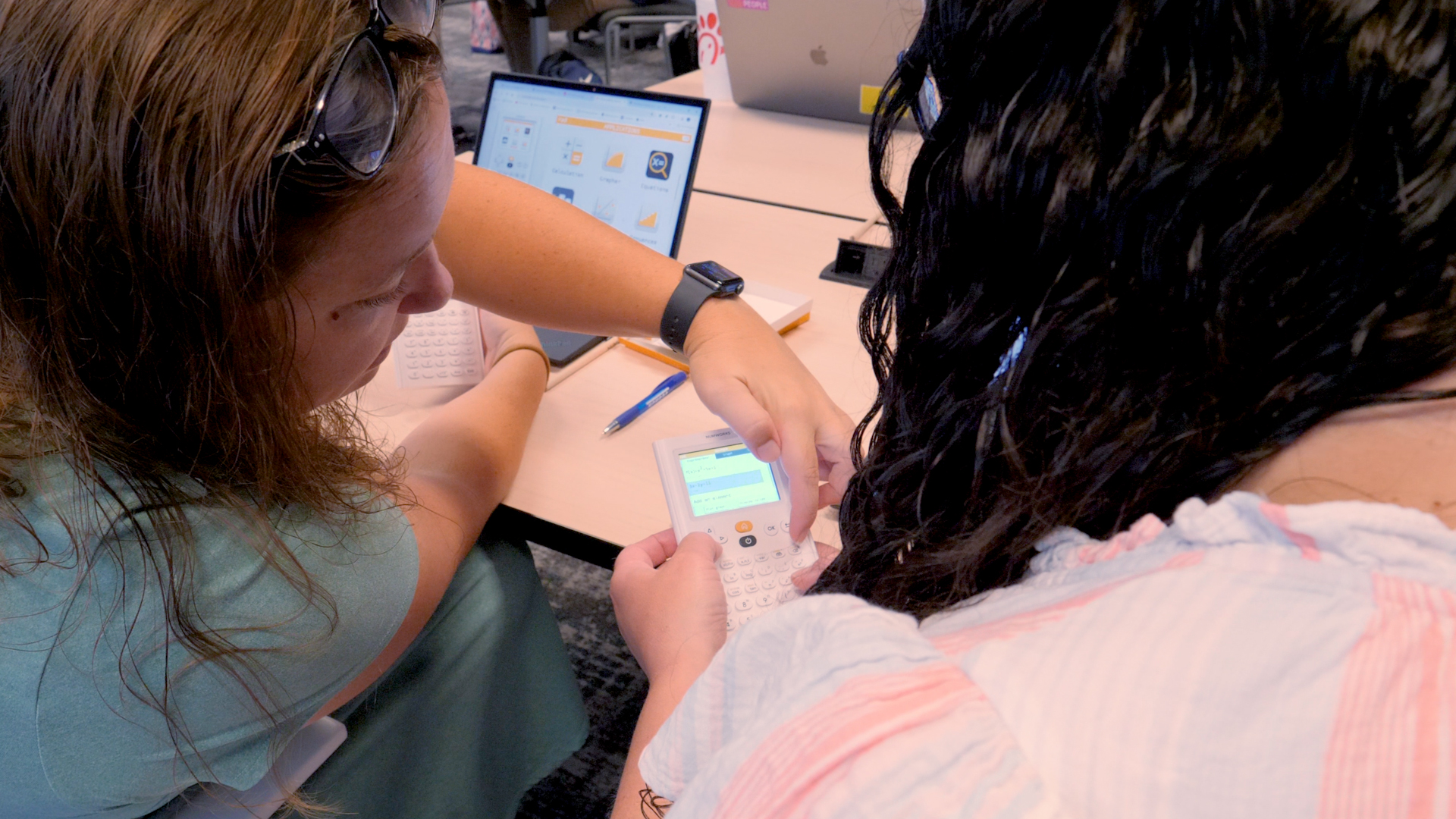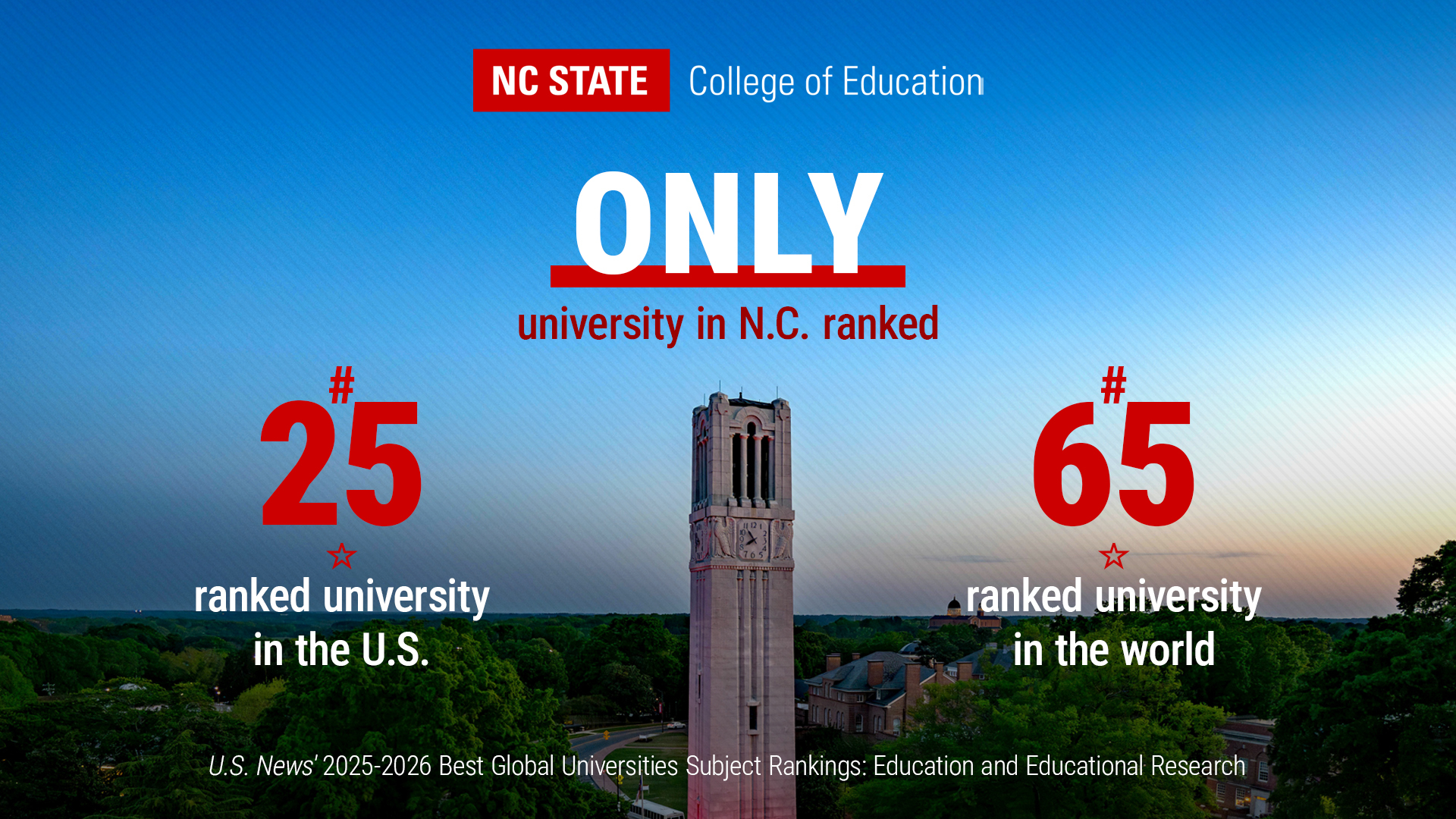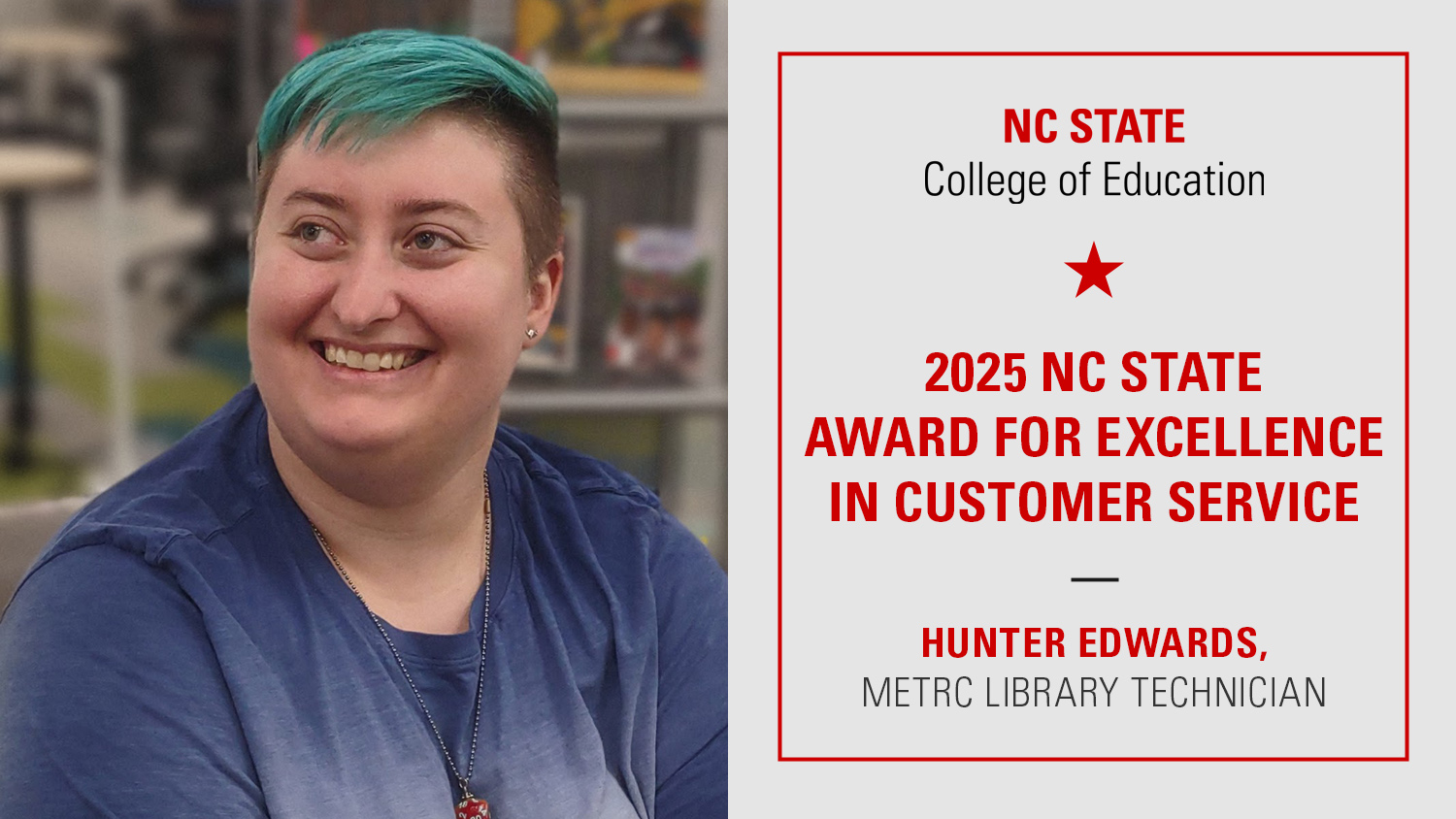‘It Made Me Grow in Ways I Didn’t Think I Would Be Able To:’ Teachers Become Leaders in Mathematics Education Through Five-year North Carolina High School Master Mathematics Teacher Fellows Program

When Justin Blackburn first entered the classroom as a new teacher nearly a decade ago, he took a traditional approach to the craft, he said. But, over the past five years, his math classroom has transformed.
The rows of desks have been rearranged to seat students in groups of four. Students are encouraged to talk to their peers rather than listen to lectures. The warm-up math problems he used to begin his class with have been replaced with open-ended questions and prompts for students to share what they notice or wonder about the question of the day.
The changes, he said, have improved the way his students approach and discuss math — and they are a result of Blackburn’s participation in the North Carolina High School Master Mathematics Teacher Fellows program.
“It opened my eyes to a whole new way of approaching teaching mathematics. We’ve done a lot of training throughout these past five years for getting kids involved through mathematical discussions, opening up the classroom and letting kids be kids and enjoy doing math for the sake of doing math,” Blackburn said. “It made me grow in ways I didn’t think I would be able to … I’m a whole different person now and a whole different teacher.”
Begun in 2019 and funded by a grant from the National Science Foundation, the North Carolina High School Master Teacher Fellows program was designed to help support developing leaders in high school mathematics across the state. Over the past five years, 18 participating teachers have completed either a master’s degree in mathematics education or a graduate certificate in the teaching and learning of mathematics through the NC State College of Education while they have continued to teach, participate in online and in-person professional development sessions, and pursue National Board certification. The project was led by Associate Dean for Research and Innovation Karen Hollebrands along with co-principal investigators Associate Professor Erin Krupa and Teaching Professor Molly Fenn.
“I’ve noticed that the way I think about how I teach has changed dramatically because of this process; because of the National Board process and because of the training that has come afterward,” teacher and participant Matthew Purser said. “The way that I think through a problem has changed dramatically, in a way that I know that I didn’t think about prior to this program starting.”
As the five-year fellowship program wraps up, the group of educators are equipped with new resources and tools, some of which, teacher and participant Elvia Rodriguez Mieja said, she would not have had access to otherwise in her rural school district.
Through her participation in the program, Mejia said she was able to get outside of her own classroom and bring new ideas and tools to her colleagues and students in Wayne County. In addition, she said, the program pushed her to become a stronger teacher who encourages her students to problem solve.
“One of the biggest impacts has been me allowing my students to productively struggle. I [now] ask them the questions that would lead them to start the problem, and they have to figure it out instead of me starting the problem for them. I will tell them to rework their thinking to lead them toward starting the problem instead of just giving them an answer,” she said.
One of the greatest resources, many participants said, has been the relationships and support systems they developed over the past five years as they worked together through earning degrees and certificates, attaining National Board certification and learning to teach through a pandemic.
“They’ve really gotten to know one another; they reach out and share resources, they seek each other for advice. So, to have a program that supports not just the professional growth but also friendships and personal growth as well is certainly something I’m very proud of,” said Hollebrands, who was the project’s principal investigator.
It’s these relationships, Purser said, that have kept him in the classroom, even through the difficult times.
“There have been moments in education in the last five years where I’ve thought that I don’t know that I want to stay in this for very much longer,” he said. “I think that the people in the cohort have definitely kept me in education to a point now where I’m like, ‘This is where I want to be.’ They got me through some of those hard times in early teaching where it was like ‘I don’t know if I can do this.’”
- Categories:


